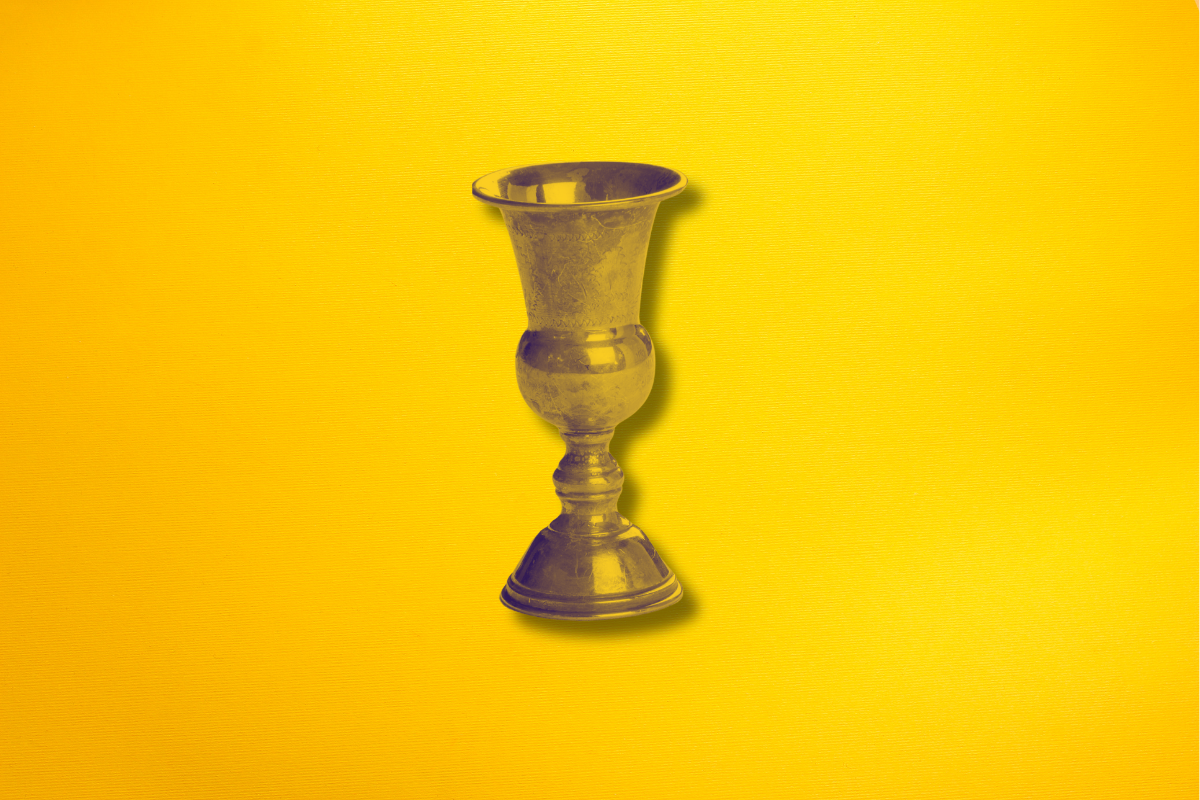I admit it: I’ve never really liked Passover. My family doesn’t do a long seder, I’ve only started avoiding eating hametz during the holiday in the last year or two, and it’s just never been a top holiday of mine. Maybe I sat through one too many bad day school seders with terrible food, I don’t know.
My son, on the other hand, has never met a Jewish holiday he didn’t love, and so he’s all in. We have been reading the haggadah in homeschool (yes, we’re using the Kveller one for learning in homeschool, and also have the PJ Library and Koren children’s one for him) and having lots of discussions about the holiday and what it means.
And of course, there is the daily reminder that we are right now, in 2024, demanding every day for a terror group to let our people go — for over six months. It only adds to my ambivalence about observing the holiday this year. It feels like a cruel irony.
Because of my disinterest in Passover, I’ve never really been interested in much of the Judaica that’s gone along with the holiday. My mother hosts the seder (yes, we generally only do one) and we use the seder plate, afikomen bag and Elijah’s cup that I made in elementary school. But this year, I’m putting a new ritual object on the table: a Miriam’s Cup.
Most know the deal with Elijah’s Cup — a glass of wine that no one touches, to symbolize the future coming of the Messiah — but people may not be as familiar with Miriam’s Cup. Named after Moses’ older sister, we fill this cup with water and place it beside Elijah’s Cup. The water symbolizes Miriam’s Well, which appeared because of her merit, and it was the well from which the Israelites drank while in the desert.
Sure, we learn about Miriam, but are we really taught about Miriam? Her name is often described as having the root mar, or “bitterness.” But there’s also another root: meri, or “rebellion.” As a slave in Egypt, she never gave up hope for a better future. She didn’t let her experiences harden her. She is the first woman in the Bible to be called a prophet, and after the Israelites cross the Red Sea, she leads the women in song and dance, embodying joy and praise.
(Don’t get me started on when she and Aaron questioned the sole authority of Moses, and only Miriam was struck down by God with a skin condition, never to speak again. But that’s a whole other rant for another time.)
Did you know that the Talmud says that the Exodus occurred because of the righteousness of the women in that generation? (RBG herself even co-authored a piece on the role of women in the Exodus!)
When I learned about the role that women played, I decided to add a Miriam’s Cup to my table this year. On October 7 and the weeks that followed, like many of us, I was glued to my computer, reading and listening to story after story after story. And what struck me was that so many of these stories centered women: The brave tatzpitaniyot (spotters) at Nahal Oz, who had been observing unusual activity along the Gaza border by Hamas for months and months before the attack, but were ignored and brushed off by their superiors. The all-female tank crew of the Caracal battalion who fought terrorists for 17 hours that Saturday. Nasreen Yousef, a Druze mom of four, who fooled terrorists and gave intel to the IDF, preventing a massacre in her village of Moshav Yated. The countless women who kept their kids as quiet as they could in their safe rooms while holding on to the door handle against intruders — sometimes successfully, sometimes not. Rachel Goldberg, who has emerged as a leading voice in advocating for the release of the hostages, including her son Hersh, repeatedly asking where are the women in all of these negotiations and decision-making meetings. Where are the mothers? Most recently, the bravery of Amit Soussana and Moran Stella Yanai, speaking up about the sexual violence they survived in captivity. And countless more.
My Miriam’s Cup is a nod to these women. It’s also a reminder of the women still being held in captivity: Naama. Judy. Noa. Romi. Arbel. Maya. Carmel. Eden. Inbar. Doron. Liri. Daniela. Shiri. Shani. Karina. Amit. Agam. Ofra. Emily. It’s a reminder to keep working for the release of all the hostages. To continue calling and emailing elected officials. To keep talking about them. To keep praying.
But most of all, the cup is a reminder to keep hope. Hope for better days, even if we feel a little bitterness.








